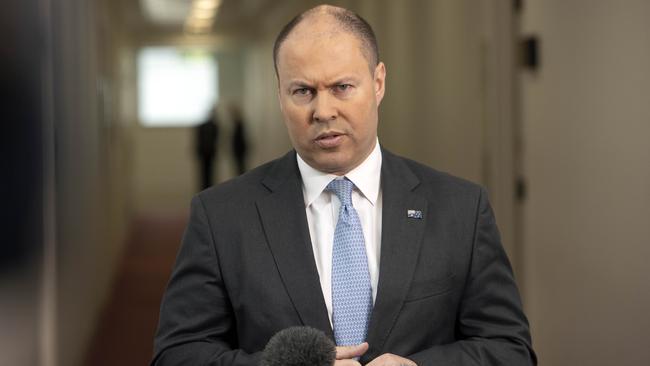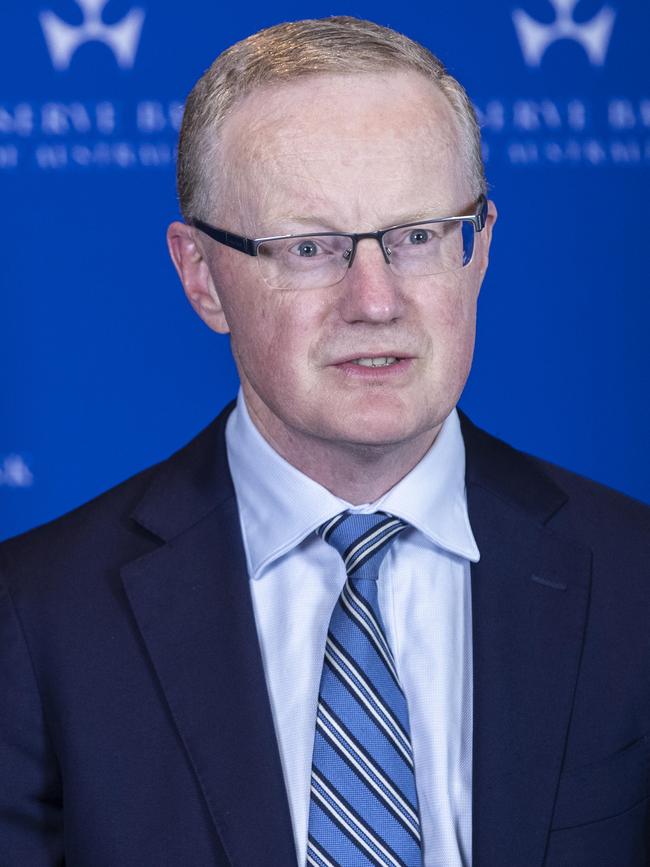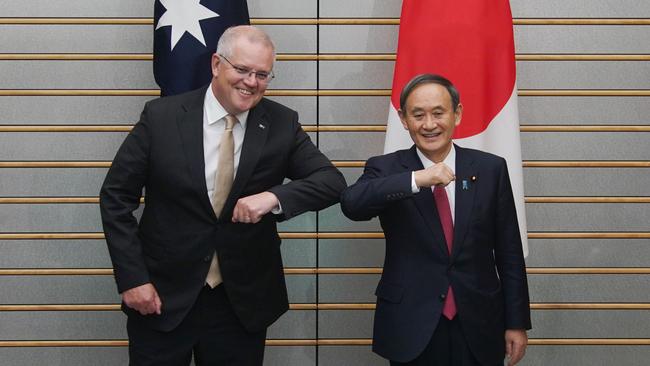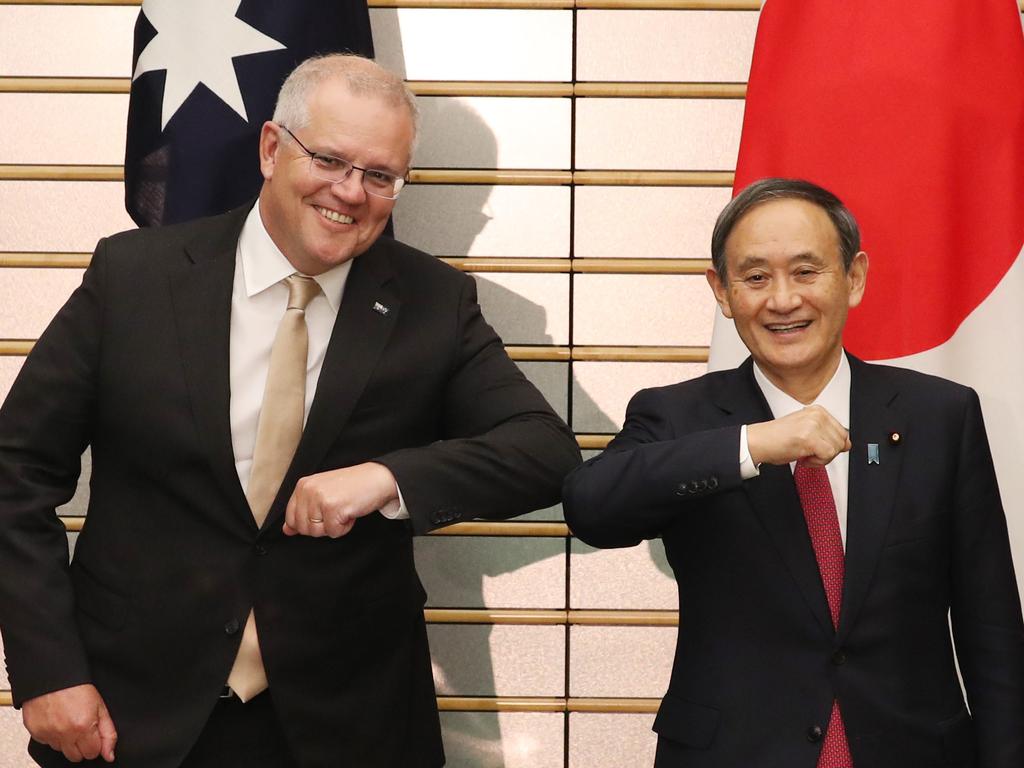China ties: We can work with China, says Josh Frydenberg
In his first diplomatic intervention, the Treasurer says Australia is committed to restoring its working relationship with China.

Josh Frydenberg has offered a critical circuit breaker to ease tensions with China, claiming the Morrison government is ready to re-engage in “respectful and beneficial” dialogue with Beijing amid escalating trade pressure but warning Australia’s national interest is non-negotiable and will never be compromised.
In the first diplomatic intervention by the Treasurer, designed to reassure nervous business leaders that Canberra was open to rebuilding relations with Chinese leadership, Mr Frydenberg said Australia was committed to restoring a working relationship with the communist superpower.
LIVE: Follow the first day of The Australian’s Strategic Forum in our blog here.
Mr Frydenberg’s comments, to be delivered on Wednesday to The Australian’s two-day Strategic Forum, follow Scott Morrison’s visit to Japan and come as concerns intensify over China’s ongoing retaliatory trade action against Australian exporters, leading to calls for the relationship to be put “back on track”.
“Both of our countries have benefited hugely from our growing trade relationship; without this, we both lose,” Mr Frydenberg says. “The fact that we have different political systems and different values means we will not always agree. That is not new. But despite our differences, we are committed to maintaining a strong and productive relationship. We stand ready to engage with the Chinese government in respectful, mutually beneficial dialogue.”
Former prime minister John Howard revealed this week he advised Mr Morrison and China’s President Xi Jinping to arrange a leader-to-leader meeting to de-escalate the diplomatic conflict, saying Australia and China needed to work out how to “peacefully coexist”.
Mr Frydenberg, who has said Australia has become a casualty in the strategic competition between the US and China, is careful to avoid any misinterpretation of his comments as a sign of a backdown in the ongoing dispute. He said Australia would always remain vigilant on national security and foreign investment and uphold its values as a nation.
“The economic weight of the world has now changed,” he says. “And not surprisingly, our current institutions, rules and norms are coming under increasing pressure. We see this most clearly through the lens of increased strategic competition between the US and China. This has seen the US shift from viewing China as a strategic partner to a strategic competitor.”
Mr Frydenbger says this is creating “a more complex and uncertain environment across the region including in trade, and countries like Australia are not immune”.
“This more complex international environment, characterised by greater strategic competition, will be with us for some time,” he says. “This will be felt throughout our region ... (But) as Australia navigates this changing environment, we will always protect our national interests, first and foremost. This is non-negotiable.
“And we will continue to stand up for our values and our long-term security, prosperity, and sovereignty. But in doing this, we will always champion the open, rules-based global system that has served us so well.”
The first day of The Australian’s Strategic Forum will host Reserve Bank governor Philip Lowe, former ambassador to Washington Joe Hockey and BHP chief executive Mike Henry. It will explore the political landscape, the impact of the US election, the global economic outlook, trade and international partnerships.


Mr Henry will say said that, while “decisive government policy” has spared Australia the worst economic ravages of the pandemic, tensions with China pose a risk, with 40 per cent of exports and one in 13 jobs tied to Australia’s trading partner.
He also praises Australia and China for taking a leadership role in the Regional Comprehensive Economic Partnership.
“The last 20 years have seen a phenomenal increase in Australian living standards,” he says. “However, this era is maturing and China’s demand for some of our resources may begin to plateau. Additionally, as the decarbonisation megatrend unfolds, demand conditions will be less supportive for energy commodities.”
Mr Frydenberg warns that the changing strategic landscape after COVID-19 will have global implications, including soaring debt levels that will keep the global economy vulnerable for years and could also become a back door for protectionism.
The Treasurer also argues that the expansion and pursuit of trade and strategic partnerships in the region — including with India and Indonesia — will act as an insurance policy against any over-reliance on China.
“Attempting to ‘decouple’ our highly integrated global supply chains, would be more than disruptive,” Mr Frydenberg says.
“It would carry huge economic costs. The answer to building economic resilience is not to shut ourselves off from the benefits of economic openness.
“There are opportunities to build resilience by developing new international partnerships and establishing new markets.”

Mr Morrison’s visit to Tokyo, making him the first foreign leader to meet face to face with new Japanese leader Yoshihide Suga, is cited by Mr Frydenberg as a “clear illustration of the strength and importance of our bilateral relationship”.
“We will work constructively with all other countries — to identify common interests and build mutual respect,” the Treasurer says.
“Reduced economic co-operation will make us all poorer and put at risk all of the gains we have made over recent decades.
“In defending our national interest, we are also seeking to maintain Australia’s reputation as a destination for investment and trade.”
Mr Frydenberg says that the pandemic has driven “deeper changes to the global economic landscape” that could not be dismissed but he argues the Asian region has withstood the crisis well and is on a quicker path to recovery.








To join the conversation, please log in. Don't have an account? Register
Join the conversation, you are commenting as Logout